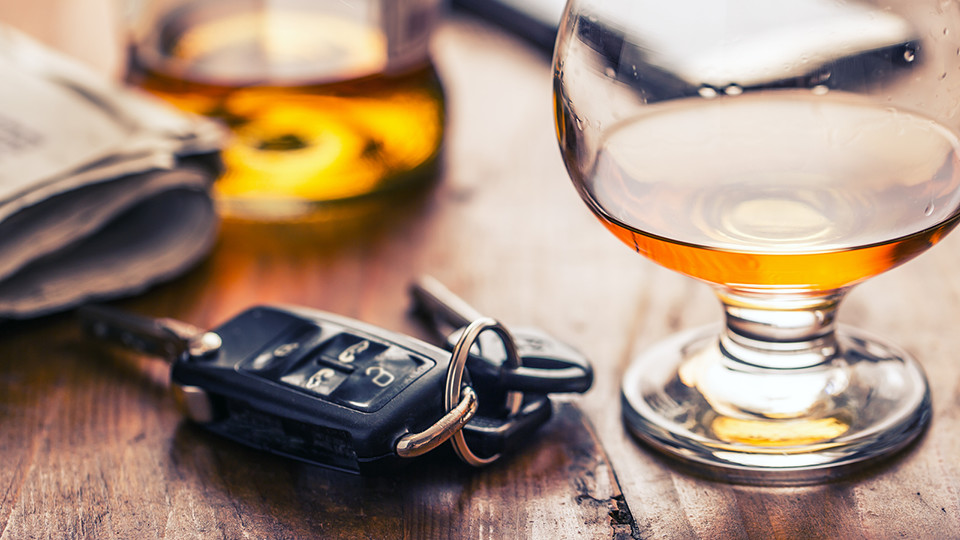Patterson Law has tried numerous drunk driving accident cases where the jury and the judge were never told the driver had been drinking or convicted of drunk-driving. Once a defense attorney admits that his client was at fault for the accident all evidence of drunk driving is excluded under Maryland law. In Maryland evidence of the defendant’s intoxication is inadmissible in a damages-only car accident trial. Komornik v. Sparks, 331 Md. 720 (1993). Evidence of alcohol use should be excluded absent a showing of intoxication.
In drunk driving injury cases, if the drunk driver does not testify then the evidence presented is usually limited to the severity of the impact, injuries and lost wages. The jury is then instructed that the only issue is what damages, if any, were caused by the car accident. This tactic allows the defense attorney to make the case entirely about whether the impact was sufficient to have caused the alleged injuries, the value of the injuries they admit to causing and whether the claimed injuries could be from an old injury. By admitting to liability, the victim of the accident can no longer rely on a jury to “punish” the drunk driving defendant with a high verdict. The drunk driving car accident lawyers at Patterson Law are experienced in presenting cases where the defendant is effectively unable to testify due to his intoxication at the time of the accident.
In cases where liability for the car accident is contested then intoxication is admissible. Intoxication as a factor that may have led to negligent conduct renders intoxication relevant in a trial. Mitchell v. Montgomery County, 88 Md. App. 542 (1991). Intoxication is not negligence as a matter of law, but evidence of intoxication is relevant to a causal chain of events that if believed by the jury would constitute negligence. If the defense cannot establish any causal connection between the plaintiff’s drinking and the accident, then the plaintiff’s ingestion of alcohol is not admissible. In Mitchell v. Montgomery County, 88 Md. App. 542, 596 A.2d 93 (1991), the Court of Special Appeals recognized that the issue is not the use of alcohol itself, but whether or not such use led to some negligent act or omission on the part of the person who had been drinking. What is required, therefore, in order for evidence of intoxication to be admissible is for the proponent of the evidence to demonstrate some causal connection between the allegedly intoxicated state of the person in question and his or her conduct or behavior. Id., 88 Md. App. at 555. This is why a drunk driver that is stopped at a red light and hit from behind has a viable injury case.
“The Maryland cases have uniformly held that intoxication is evidence of negligence, but no case … has gone as far as saying that mere evidence of intoxication is, in itself, sufficient to show negligence.” Quinn Freight Lines, Inc. v. Margaret R. Woods, etc., et al., 13 Md. App. 346, 352, 283 A.2d 624 (1971), In Quinn, the Plaintiff, Margaret Woods, had been drinking and was involved in a collision with a vehicle that merged into her path while her view was partially blocked. Ms. Woods was found to have a blood alcohol level of .19 at the time of the accident. However, the Court of Special Appeals found that her blood alcohol level was inadmissible because “[a]lthough Woods had been drinking heavily and had 0.19% of alcohol content in her blood at the time of the accident, there is no evidence to indicate that this in any way was a contributing factor to the accident.” Id., 13 Md. App. at 350.
Most victims of drunk driving accidents are surprised that evidence of drinking will be excluded absent diligent work by an attorney. In Wilbur v. Suter, 16 Md. App. 518, 730 A.2d 693 (1999), the Court of Special Appeals upheld the trial court’s exclusion of a fire department report indicating the plaintiff, Suter, had consumed several beers over the course of the afternoon and evening preceding the fire at issue. The Court found that what was lacking to allow admissibility of Suter’s drinking was “… evidence that Suter’s alcohol consumption impaired his sensibilities, which directly caused the fire, or that he did something to the light switch to ignite the fire.” Id., 16 Md. App. at 528.


